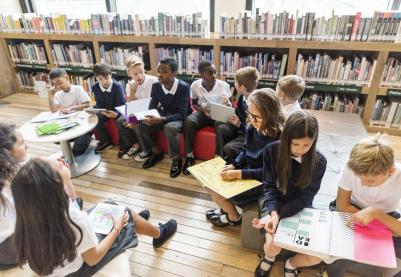The TaRs research project found that RfP is strongly influenced by relationships between children, teachers, families and communities. Where shared understandings were established about the changing nature of reading and the value of everyday reading practices, these supported children’s RfP. These reading communities generated new kinds of talk about reading.
Reciprocal and interactive reading communities enabled teachers to:
- Develop a shared concept of what it means to be a reader in the 21st century
- Create new social spaces that encouraged choice, parental and library involvement and child ownership of their RfP
- Make strong connections between children’s home and school reading worlds
- Foster children’s autonomy as readers who can exercise discrimination within and beyond school
- Build new and more equal reading relationships with families and community members.
In this film Dr Rachel Levy of the University of Sheffield draws on her own research to explore the barriers and motivations for shared reading in families.
In this film Jon Biddle, winner of the Egmont/OU/UKLA experienced teacher award, and Professor Teresa Cremin discuss the importance of building reciprocal and interactive reading communities.




Rate and Review
Rate this video
Review this video
Log into OpenLearn to leave reviews and join in the conversation.
Video reviews